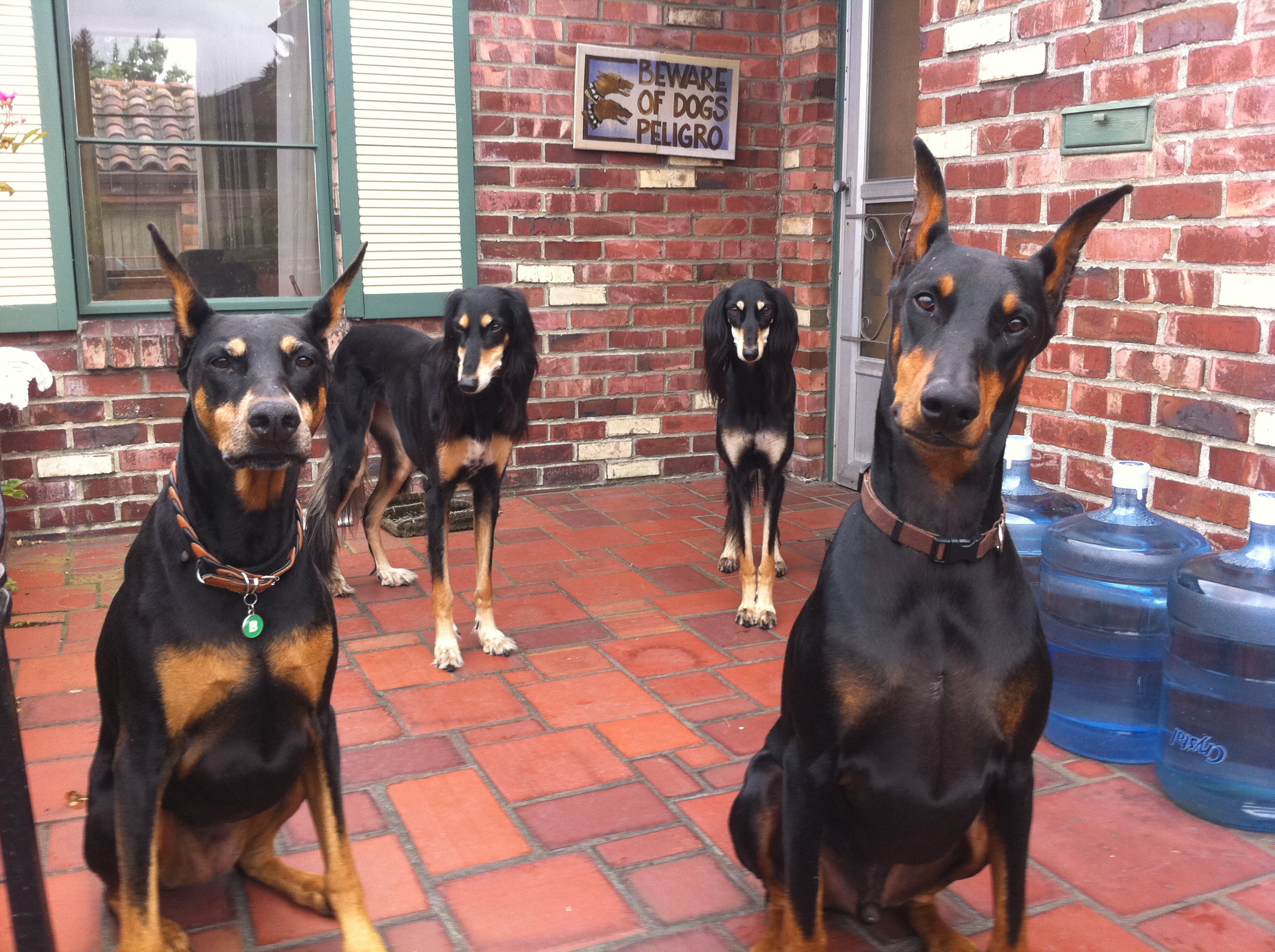
by PracticalWidow | Jun 7, 2009 | Being The Widow, Newly single? Surprise!
The wedding ring issue. What to do, what to do?
John wore a ring that we bought together, engraved with our initials and the date of our marriage. At some point in the ICU he was puffed up with fluids. One of his marvelous nurses suggested that he take it off while he still could, since she would have to cut it off otherwise. I don’t think he ever removed his ring, even during his idiotic affairs. I slipped it on my own finger, since we didn’t want to lose it—and there it remained for quite some time.
It’s a dilemma to know what to do with the rings. I didn’t remove my wedding ring for a good long time, in fact for nearly a year. I experimented with putting different rings in place of my engagement ring, although I had also done that when John was still alive. Around the date of our wedding anniversary, I bought myself a strong gold necklace and put his ring on that, along with a gold charm of the Space Needle and a gold charm of the state of Texas given to me many years ago by a dear friend. The three symbolize the journey of our life together—we met in Texas, we parted in Seattle. At the same time, I shifted my own wedding ring—which had been my grandmother’s, engraved with their initials and their wedding date in 1918—to my right hand and it feels right there.
The other day, I was chatting with a widow friend who had celebrated her 50th wedding anniversary in October of 2008. Her husband died in March of 2009. Three weeks later, she was playing bridge with some friends when one suddenly said, “Oh, I’m so pleased to see you’re still wearing your wedding rings!” Three weeks after he died, following fifty years of marriage. For heaven’s sake. Was she supposed to take them off the minute he died? What for? To signify her single-hood? To catch herself another man? Just because she wasn’t technically “married” any longer? I’m certain that the rings were the last thing on her mind, but even if they weren’t, she can wear whatever jewelry she wants, widowed or not. And that particular jewelry, symbolism aside, had been on her hand for fifty years, longer in the case of the engagement ring! I’m sure it didn’t even cross her mind until someone pointed it out. That’s a shame.
Another friend had divorced her philandering husband and flung her rings from the deck of a Washington State Ferry into Puget Sound. Sounds cathartic, doesn’t it? She was, of course, smart enough to remove the diamonds first. I think there’s a certain anger toward the symbolism of the rings which happens in divorce but isn’t there in the case of widowhood. I was certainly disgusted at the rings when John was the one doing the philandering. I can understand wanting to fling them into the deepest, coldest water I could find.
But as it is, I still wear rings on my left ring finger. I just like it. Partly, it reminds me of the idea of being married and everything that meant. Symbolically, like a nun. But truthfully, I have several lovely rings and only have two fingers they fit. One of them is the traditional wedding ring finger. So there you go. If you want to know my status, well, don’t be afraid to ask. But you should know what the answer is: I’m a widow. I’m no longer married. And I wear lots of rings.
UPDATE: July 2009—Oddly, I’ve developed some arthritis in the middle joint of my left pinky finger. Many years ago, I sliced the side of it open on some glass and had restoration surgery done on it, which has probably accellerated the inevitable arthritis I’ll be getting in all my joints. But the joint has become somewhat sensitive and was rubbing against the ring I was wearing on my wedding-ring-finger. Therefore: I had to remove the ring. Perhaps a sign of some kind? A goose from beyond to remove the symbolism? Just getting old and creaky? Who’s to say. At any rate, I’m now ringless on my left hand and my joints feel better.

by PracticalWidow | Jun 1, 2009 | Being The Widow, Friends Of The Widow
If you’ve lost your partner, there’s a Being The Widow category. Here, I ruminate on coping with death and loss and share all kinds of things about being single again in Newly Single? Surprise! And something I wish I had known more about when I was newly widowed was things people say to you. I would have appreciated bracing for a few of the doozies. (They really happen!) I might have been more open to the depth of feeling hidden behind the words.
If your friend has become widowed, there’s a Being The Widow’s Friend category. And there’s the Top Ten Things Not To Say To A New Widow, hopefully providing perspective on both sides of the death fence. Look around and see what resonates with you.
Everything here is written in the straight man/woman marriage, feminine form, such as “she”, “widow” and “husband”. You can alter it however best fits your needs. John and I did not have children, so I don’t speak to being a newly-alone parent. I can’t even imagine what that’s about. If you are, I hope you’ll start a blog for those like you, or add some thoughts in here.
Most importantly please, if you’re in too much anguish or feel so overwhelmed you can’t go on—seek professional help immediately. It really does help to talk to the pros to get you through the darkest times. Believe me, I’m no professional anything. Honestly, this is what I am and when you get down to it, anyone can do that. Go to the ones who know how to help: talk with your doctor, clergyman, therapist, support group… whatever gets you through.
Or join in and blog alongside me. There’s plenty of room. Let’s try to help one another.
—The Practical Widow

by PracticalWidow | May 18, 2009 | Friends Of The Widow, Things People Say To You
Today I was walking my two marvelous dogs around a very popular local lake. Despite the spring rain, there were lots of others sharing the path on bikes, or with strollers or their dogs. When passing a woman with a young playful bulldog who wanted to come visit my dogs to play, she began loudly scolding the bulldog to “Leave It” instead of acknowledging me or my passing pups. Think about that: Leave. It. What is “It”? Me? Or my dogs? We’re sentient beings, we’re not Its. As if we were turds or contagious. Some popular dog trainer, maybe those damn monks, told everyone this is what to say to dogs to get them to leave an object alone, irregardless of the situation. And now every dog owner is bellowing “Leave It” at their poor dogs and innocent passers-by.
During a Delta Dog therapy training session a few years ago, our trainer pointed out if you are bringing your dog to visit a patient who might have food in their hands, yelling “Leave It” to the dog makes the person feel even worse than they already do. These people feel like objects in the first place, now they’re getting it confirmed by some dog owner who won’t acknowledge them using the proper pronoun. A much better alternative was to teach the dog “Not now!”
Doesn’t that sound better? A small shift in semantics but it’s so much nicer. It’s more respectful to the person and to the dog. It’s a gentler thing to say and it holds the faint whiff of hope: Puppy, you can’t have that particular thing now, but maybe, if you’re extra good, you can have it later! Think how much better it sounds to the person behind the object—they get to be included in the conversation, “Okay, the dog can’t have this now (but maybe later!)” instead of “I must be some thing so awful even the dog must avoid me!”
Where does this come into The Practical Widow BlogLand? Because it’s important to try to recognize how our words are being heard. Despite our best intentions, we may be meaning one thing and saying another. I’m sure the young girl with the bulldog did not mean to say “Leave those disgusting objects alone!” but that’s a bit how it came across. I’m certain that those who ask widows “Was there life insurance” or say “Mrs. X has been widowed for years and she’s still not over it” genuinely mean well. Perhaps they mean to say, are you doing okay or you’re not alone in extended grief. And maybe it’s not a good time for me to haul the dead guy out at the party, even though I might be feeling bad at that moment. Do I need to be the Debbie Downer?
Maybe we need to think whether the right thing to say is, “Not now”.
I hasten to add that you—and I mean you, you and you too—must acknowledge the death and give your sympathy if you haven’t done so already. Do not think “I’m just bringing up bad memories.” You’re not, you’re being a good friend. Acknowledge it and move on. Never just pretend it didn’t happen. Never ignore it. She will not think you’re being kind to her feelings, she will think you just don’t care. And I presume you do, or you wouldn’t be reading this.

by PracticalWidow | May 3, 2009 | Coping with death and loss, Friends Of The Widow
You don’t get to be a widow without a dead guy. So if you plan to be a good dead guy (and one day, we all shall be filling that particular role) it’s going to make it far easier on those left behind who love you. Do a little planning ahead. It helps a lot.
Have a will. Keep it up to date and be sure your loved one knows where it is. Make it as clear and extensive as you can think of. Ours was a very simple “I love you will”, essentially meaning everything that was mine went to John and everything of John’s went to me. If you have a more complicated situation, the more clear you can make your will the better. And the cheaper the attorney fees will be to settle your estate.
Keep your papers in order. Having all your accounts in one place and the paperwork all together, even if all just shoved in the same filing cabinet, makes things a world easier and eliminates any unpleasant surprises.
Have medical directives. This is so important. Even though John’s final illness took its own obvious course, it was enormously comforting to me to have his medical directives there to read, clearly outlined. They didn’t specifically apply in his final illness, but it helped a great deal anyway. I knew that I was addressing his medical care in line with what he wanted, he had said to me, “You’ll know what to do”. But to have written proof to that effect helped even more. You too might have talked about it in some abstract sense now and then. There’s always the chance that family members will passionately disagree about “What He Really Wanted”. Having it in writing will make it significantly easier on all concerned. We were lucky as we were all in agreement, in fact, the three people he named in the directive were there at his bedside but his wishes in writing were still a great comfort to all of us.
Don’t have bad secret stuff. Fortunately for me, all John’s affairs had been aired out in the open and I knew about his past transgressions. He was a scrupulous keeper of sentimental items, so had kept all kinds of… well, “evidence”. It had all come out during our marital woes and I had asked him to dispose of everything, but still I worried about going through his things after he died. As luck would have it, the only such things he kept after our reconciliation were sentimental items about me and our life together. That was a great relief. Besides, you never know who is going to paw through your things after you die. Try to only leave things that are how you would like to be remembered.
Good secret stuff is okay though. Part of dealing with enormous loss is the recognition of the transient nature of everything except for the love you shared. None of the stuff matters. Still, discovering sweet or funny things about John long after his death is lovely. He stashed baseball cards everywhere, it’s fun to find them. And he left a playlist on his iPod filled with songs named “Songs A. Should Like.” It’s like a lullaby to me now.
Pretty damn inconsiderate of him to die when you get right down to it. But I did appreciate that he left his life in order. It made it easier to shoulder the stuff alone.

by PracticalWidow | May 3, 2009 | Being The Widow, Coping with death and loss, Friends Of The Widow
John’s death was relatively sudden. Not as quick as a heart attack or accident but not as prolonged as terminal cancer either. He went into the hospital on October 30 and was dead by November 11. Through that week and a half, each day was harder to bear than the one before. I barely had the ability to make it from the hospital back to the house in once piece. Every iota of my being was sharply focused on the crisis at hand. So I was unable to function on any kind of normal level. Here’s some things that helped me get through the final days.
If you’re facing a medical crisis like this, go military: Make yourself the Commander-in-Chief and focus on your war. Everyone’s crucial in a successful army, from officers to privates. I had a tremendous staff of friends who rallied around. Making one friend the primary contact meant that I could funnel updates through her and I didn’t have to repeat the whole story over and over. One friend coordinated food deliveries. One was in charge of helping me to leave the hospital periodically, if only to walk around the block, getting fresh air and some exercise each day. Yet another neighbor helped care for the dogs and the house, ensuring all was well and looked after. And still another friend handled my work load, informing clients and finishing up tasks I left half-completed. I could not have gotten through without my army of support.
It helps if your officers are good at prioritizing and presenting decisions for you to make. You don’t want to have to answer to a million little details. On that same note, prioritize items yourself. Be clear about what you need. Generally speaking, and in the following order, it’s getting food and sleep for yourself, being sure your house and animals are safe (I don’t have children, that’s a different kettle of fish), and taking care of your job and work duties. Unless it’s critical and it’s going to cause genuine long-term damage, go ahead and let things slide. Allow your friends to work how they need to work. If your friends and family make some wrong decisions in their attempts to help, let it go for now. You can always fix things later. You’ll have time.
Regarding phone calls: During these weeks, I would wake up very early, around 5:00 a.m. to get to the hospital in time to share breakfast with John and to be there for morning rounds. I spent all day at the hospital, late into the night and sometimes even longer, depending on what was going on. So when I was able to stumble home I desperately needed to sleep. I grabbed sleep where I could, usually at odd hours, sometimes in the day or evenings. Well-meaning friends calling to check in would often be met with my panicked, half-asleep response as the ringing phone woke me in terror, thinking it was the hospital. Mail is better. E-mail is helpful and I could not only check it at 3:00 a.m. but I could also broadcast major news as needed. Funneling phone calls to a designated friend allowed people to be able to check in when they were able and messages to be passed to me when I could receive them. Remember too that many hospitals do not allow cell phones in the ICU areas so making or receiving calls can be difficult.
Mail. E-mail and snail mail. Write and send cards. They’re appreciated. But please remember. Until the moment death happens—the person is very much alive. If you know the situation is dire and terminal, probably not a good idea to send a “Get Well Soon” card. But a Thinking of You is always good. I was able to read e-mails and cards aloud to John and he loved them. One friend wrote long e-mails about the restaurants she had been to, since she knew John was a foodie. In the last week, he couldn’t speak because of the oxygen but he would scribble notes of thanks back to me.
Drop off books and magazines. Medical crises often involve long stretches of nothing with bursts of intense activity. Getting books or magazines that were easy to pickup and put down was very much appreciated. I like graphic novels, so those were good and I didn’t have to think much when I read them. John loved baseball, so I would read aloud to him from baseball books and that helped to pass time as well as something he very much enjoyed. One friend even brought over Mad magazine, which was fun and silly. Think airport reading—books that don’t require a lot of thought or attention but are lightly distracting from the task at hand.
My friend S. put together a care basket for me that included basic necessities such as facial cleanser, moisturizer, Emergen-C, good green tea, protein bars and the like. It was wonderful. It came in its own basket, so I could tuck it out of the way in the hospital room, and it gave me a way to freshen up that was easy and quick. Believe me, you need it after intense stretches in the hospital.
Long distance? That’s a tough one, it hurts to be so far and feel so helpless. But as long as your friend in crisis is covered with local help, you’ll have plenty to do as time goes by, just try to stay in touch and react appropriately. My amazing friend from my home town helped my mother attend John’s funeral. She also stepped in to manage immediate family needs.
After John’s death, a dear friend from across the country was there the very next day, staying with local friends, helping with day to day necessities and generally managing the flood of household chaos that came during those days. Just having her present to lean on, knowing she would handle anything that came my way and that she would quietly take care of me, was a reminder that I did not have to bear this alone. Others visited a month or so after the funeral was over, which was an invaluable reminder of ongoing friendship.
At the end, when it was obvious John would not survive this battle, I was lucky enough to be able to call in my own General Patton, my avenging angel: my stalwart brother who materialized the moment I needed him most and carried me through the darkest of days. I know I am extraordinarily blessed to have that in my life. There’s only one of him… but I hope you all have someone who can be there for you.




